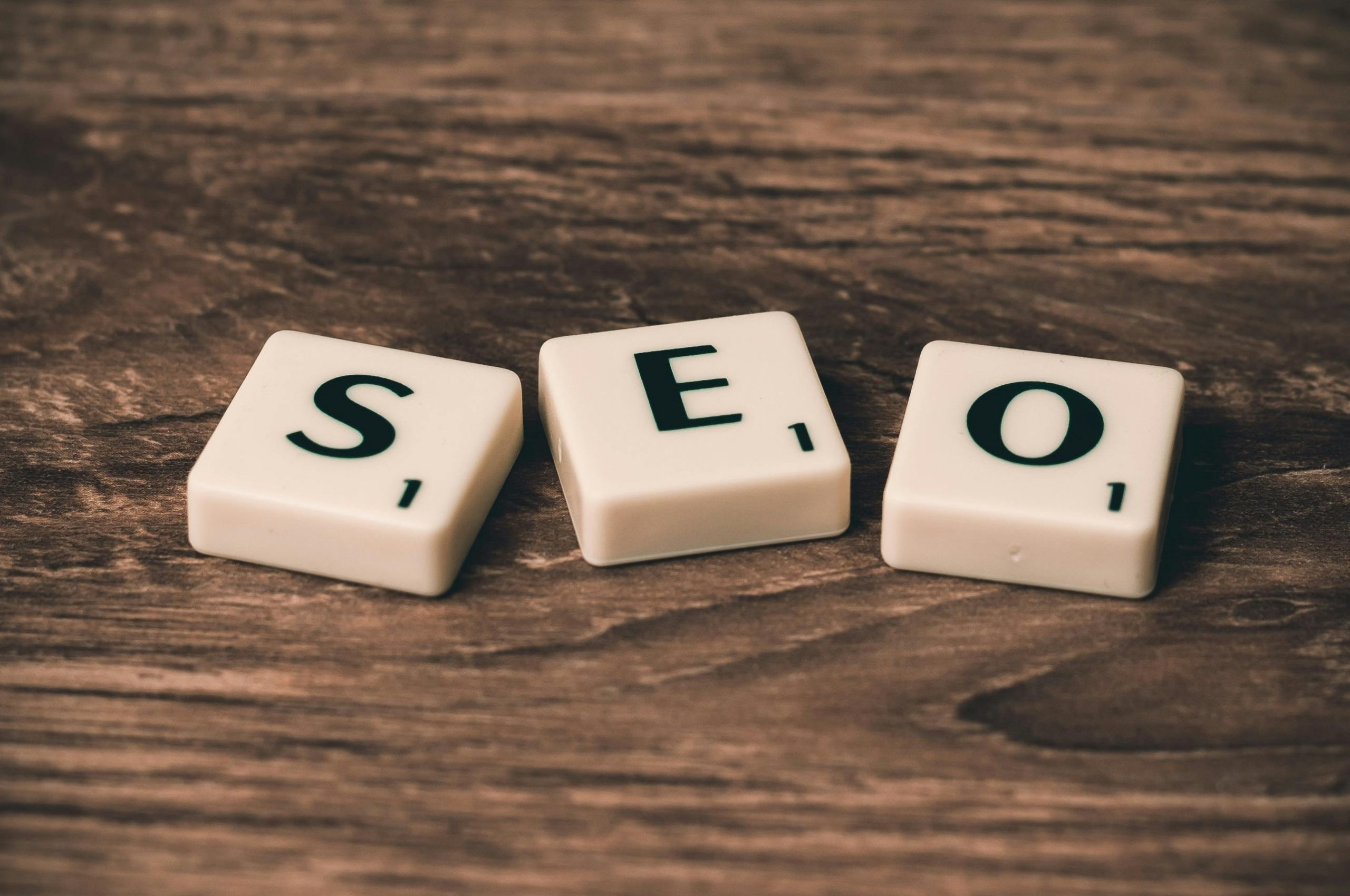Will SEO Still Exist in 10 Years? Or Will AI Replace It?
Many people ask if SEO is still relevant in a world where AI-driven algorithms are the norm. It's crucial to address these concerns and clarify misconceptions.
Let's learn about AI's impact on SEO, explore how AI changes SEO practices, and highlight why SEO remains essential in digital marketing.
In this context, having an SEO-friendly website ensures success and visibility in the competitive digital landscape.
Pre-AI SEO Era: How SEO Existed Before AI
Before AI became a dominant force shaping search engine algorithms, the landscape of SEO operated within markedly different parameters. SEO practitioners were confronted with a challenging landscape where manual processes and intuitive strategies were the norm in optimising websites for search engines.
Keyword research, considered one of the foundational pillars of effective SEO, is a laborious process characterised by meticulous trial and error. SEO experts would painstakingly sift through limited data sets to identify keywords relevant to their target audience. This process often involved considerable guesswork and experimentation, as few tools were available to provide comprehensive keyword insights.
Likewise, link-building strategies relied heavily on manual outreach efforts to acquire backlinks from authoritative websites. This endeavour demanded significant time and resources, with no guarantee of success. SEO professionals would engage in outreach campaigns, forging relationships with webmasters and content creators to secure valuable website backlinks.
Technical SEO, another essential optimisation component, requires a keen eye for detail and a deep understanding of web development principles. Website owners navigated the complexities of HTML markup, website structure, and server configurations with precision and expertise. Every aspect of a website's technical infrastructure had to be meticulously optimised to ensure optimal performance in search rankings.
Without AI's advanced data analytics and automation capabilities, SEO professionals rely heavily on their knowledge, experience, and intuition to navigate the intricacies of SEO.
Success in the pre-AI era required technical expertise, creativity, and perseverance as practitioners grappled with the evolving algorithms and competitive landscape of search engines.
How AI Disrupted the SEO Industry

Integrating AI into search engine algorithms has marked a significant turning point in the SEO landscape. With the advent of AI-powered algorithms, search engines have undergone a transformative evolution, becoming increasingly adept at understanding the literal meaning of user queries and the underlying intent, context, and relevance of the content being sought.
This paradigm shift has forced SEO practitioners to reassess and adapt their strategies to align with the evolving priorities of search engines. They can no longer rely solely on manipulative tactics aimed at gaming the system; instead, they must prioritise user-centric approaches that focus on delivering value and relevance to the end-user.
One of the most notable impacts of AI on SEO has been its role in combating spam and low-quality content. AI-powered algorithms can now discern between high-quality, valuable content and content artificially inflated with keywords or other manipulative techniques. This crackdown on manipulative tactics has levelled the playing field, rewarding websites prioritising quality content and user experience.
Moreover, AI has ushered in a new era of personalisation in search results. Search engines can now deliver tailored recommendations that are more relevant and useful to each user through data on individual user preferences, search history, and behaviour patterns. This shift towards personalisation has necessitated a more nuanced approach to SEO, emphasising creating diverse, engaging content that resonates with specific audience segments.
Integrating AI into search engine algorithms has transformed how search engines operate and fundamentally reshaped SEO practice. SEO professionals must maintain agility and adaptability as search engine algorithms advance in sophistication. Constant refinement of strategies is essential to keep pace with these evolving algorithms and secure ongoing success in the dynamic digital landscape.
The Evolution of AI in Search Algorithms
Incorporating AI into Google's search algorithm has been gradual, spanning several years of iterative improvements and advancements. AI technologies like machine learning and natural language processing have improved the comprehension of search queries and semantic analysis.
Over time, Google's algorithm has become increasingly sophisticated, leveraging AI to accurately assess web pages' relevance, authority, and credibility.
Google's introduction of RankBrain in 2015 marked a milestone in the evolution of AI-powered search algorithms. RankBrain, a machine learning algorithm, is crucial in interpreting complex search queries and delivering more relevant search results. Since then, Google has continued integrating AI technologies into its algorithm, with updates like BERT (Bidirectional Encoder Representations from Transformers) further refining the search experience.
Future-proofing SEO with AI Tools

The rise of AI has undeniably disrupted traditional SEO practices. Still, it has ushered in a new era of optimisation and growth, presenting many opportunities for businesses to thrive in the digital landscape. Additionally, with the increasing prevalence of voice search, voice search optimisation has become crucial for maintaining visibility and relevance in search engine results pages.
One of the many advantages of AI-powered tools and platforms lies in their ability to provide data-driven insights. AI algorithms can analyse vast data, allowing businesses to uncover valuable insights into keyword trends, competitor strategies, and analysing user behaviour patterns. Leveraging these insights will enable businesses to refine their SEO strategies to better align with the needs and preferences of their target audience.
Furthermore, AI-powered automation tools offer unparalleled efficiency and productivity gains for SEO practitioners. Tasks like keyword research, content optimisation, and performance tracking can be streamlined and automated, freeing up valuable time and resources for more strategic decision-making. This enables businesses to focus on areas that drive the most significant impact and ROI.
Another compelling aspect of AI in SEO is its predictive analytics capabilities. AI algorithms can forecast future trends and changes in search engine algorithms, providing businesses with valuable foresight to proactively adapt their SEO strategies. By staying ahead of the curve, businesses can put themselves for success and maintain a competitive edge in the rapidly evolving digital landscape.
Moreover, AI-driven personalisation tools have revolutionised how businesses engage with their audience. By leveraging AI algorithms, businesses can deliver tailored content experiences to individual users, increasing engagement and conversion rates. This personalised approach improves the user experience and fosters stronger customer relationships and brand loyalty.
It is imperative to embrace these advanced tools and technologies to future-proof your SEO strategy in the age of AI. Whether leveraging natural language processing algorithms to optimise and create content or using predictive analytics to anticipate algorithmic changes, incorporating AI into your workflow can help you stay ahead of the curve and drive sustained growth in an increasingly competitive digital landscape.Â
Takeaway

The impact of AI on SEO, particularly in terms of content creation and AI-generated content, has been profound, reshaping how businesses approach search engine optimisation. From the manual processes of the pre-AI era to the data-driven insights and automation capabilities offered by AI-powered tools, the evolution of SEO has been closely intertwined with advancements in artificial intelligence.
While doubts persist about the compatibility of traditional SEO methods with AI advancements, it's crucial to recognise that optimising digital assets remains a valuable skill set. If a monetised or centralised directory of the web persists in the next decade, the ability to effectively optimise digital content will continue to be essential, especially in the context of AI-generated content.
By mastering SEO techniques and becoming the authoritative source in your niche, businesses can ensure their digital assets remain visible and competitive in the evolving digital landscape, ultimately aiming to dominate SERP results.





